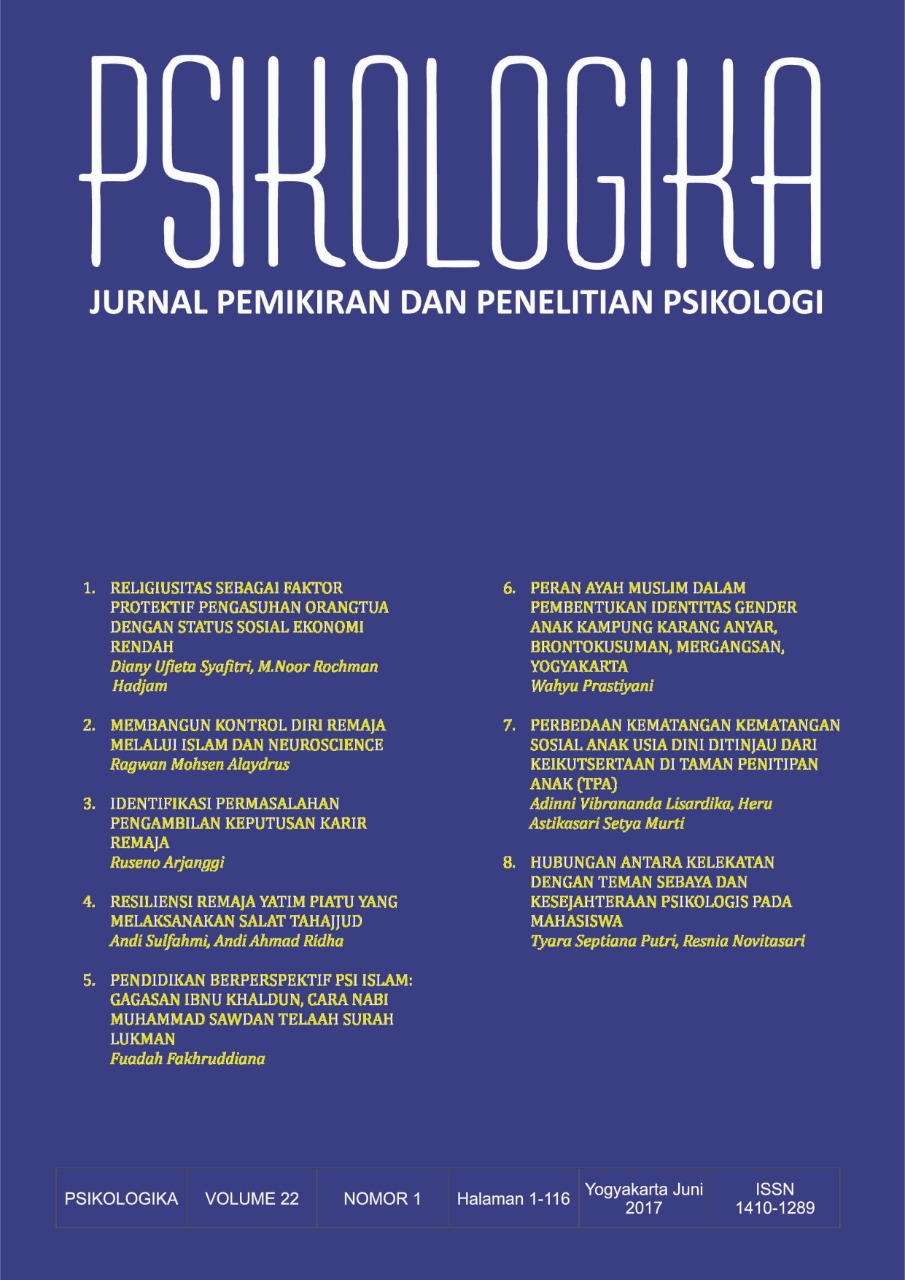Main Article Content
Abstract
Compulsive buying as an impulse control disorder that is characterized by a person's mind to shopping and excessive spending behavior, thus making the culprit problematic in terms of self-esteem and anxiety, that there is no standard treatment. Research from various countries have reported this problem, especially in the case of women and adolescents. The demands of the times and ease of transactions made consumers more interested in worldly and feel not quite over his life, so that consumers can get stuck in consumer lifestyle and go into debt. Hamka (2007) expressed gratitude for favors and patiently accept the divine decree, although not unpleasant self is the intent of qana'ah. When someone does not have qana’ah attitude, his mind would be chaotic if not get what they want, but like to be proud of themselves when having the appropriate expected. Compulsive buying can cause psychological distress, interpersonal, and significant financial. Black (2007) developed a cognitive-behavioral therapy as an alternative to overcome this disorder, also with a circle of simplicity, this paper presented in the form of qana'ah as an Islamic solution on psychological disorders.
Article Details
License
Authors who publish with this journal agree to the following terms:
- Authors retain copyright and grant the journal right of first publication with the work simultaneously licensed under a Creative Commons Attribution-ShareAlike 4.0 International License that allows others to share the work with an acknowledgment of the work's authorship and initial publication in this journal.
- Authors are able to enter into separate, additional contractual arrangements for the non-exclusive distribution of the journal's published version of the work (e.g., post it to an institutional repository or publish it in a book), with an acknowledgment of its initial publication in this journal.
- Authors are permitted and encouraged to post their work online (e.g., in institutional repositories or on their website) prior to and during the submission process, as it can lead to productive exchanges, as well as earlier and greater citation of published work (See The Effect of Open Access).




